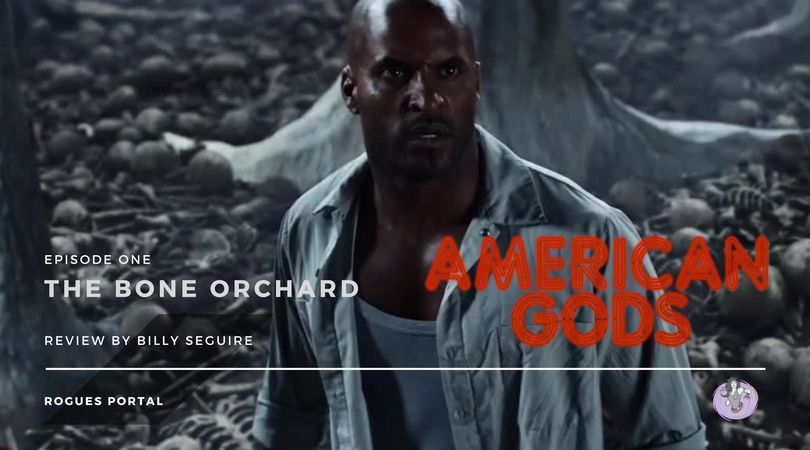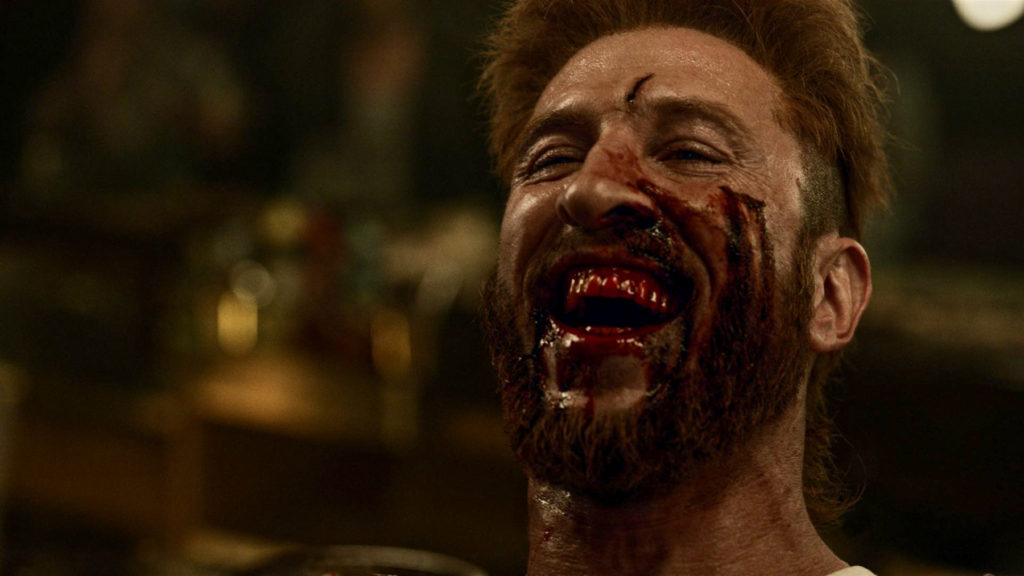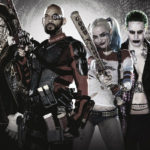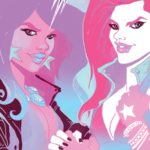
American Gods: The Bone Orchard
Director: David Slade
Writer: Bryan Fuller, Michael Green, Neil Gaiman
Starring: Ricky Whittle, Ian McShane, Emily Browning, Jonathan Tucker
A review by Billy Seguire
 I first read Neil Gaiman’s American Gods about five or six years ago when a secondhand copy of the novel caught my eye. After devouring it in a little under a weekend, I was immediately in love with Gaiman’s style of rich, mythological storytelling with incredible characters. I loved the way the novel contextualised our modern world within the scope of Gods, and it changed the way I looked at the way our culture relates to mythological history. When I heard Starz was making a series, I wasn’t sure if an adaptation would work, but putting Bryan Fuller (Hannibal, Pushing Up Daisies) in charge gave me faith. I’m happy to say The Bone Orchard lived up to my expectations.
I first read Neil Gaiman’s American Gods about five or six years ago when a secondhand copy of the novel caught my eye. After devouring it in a little under a weekend, I was immediately in love with Gaiman’s style of rich, mythological storytelling with incredible characters. I loved the way the novel contextualised our modern world within the scope of Gods, and it changed the way I looked at the way our culture relates to mythological history. When I heard Starz was making a series, I wasn’t sure if an adaptation would work, but putting Bryan Fuller (Hannibal, Pushing Up Daisies) in charge gave me faith. I’m happy to say The Bone Orchard lived up to my expectations.
The opening scene of The Bone Orchard sets a tone of torment and sacrifice while showing us the formation of traditions that lead to the creation of the Old Gods in America. It’s a brutal scene that knows what it wants to be, led by narration that transposes Gaiman’s prose directly to screen. These Vikings aren’t fully fleshed characters, but their struggle sets a stage for a series firmly rooted in the past and the darkness of human action. As the desperation rises, we’re treated to a level of gore comparable to Starz’ own Ash vs. Evil Dead. America is branded as a cursed place as the Vikings depart: their Gods abandoned on the shore.
Shadow’s story takes a different form, and I couldn’t be happier in its execution. As the story gets going, the rhythm of American Gods falls organically into pure jazz, both in terms of sound and the general cadence of the scenes. Brian Reitzell’s score is the perfect companion for these images, and he knows how to push jazz, the American artform, directly into the musical direction when appropriate. When Shadow talks with his cellmate, it similarly plays at an almost Shakespearean level of artifice in their dialogue, almost as if the sound of their words was more important than their meaning. The synergy worked so well that I was almost disappointed that later scenes moved at a more conventional pace.

As expected from the trailers, Fuller has delivered yet another beautiful series with American Gods. I don’t know if he carried over from the same crew from Hannibal, but American Gods looks to give even a series as gorgeous as Riverdale a run for its money. In particular, there’s some sweeping camerawork in the scene of Shadow’s last night in prison that genuinely impressed me. A few great shots like that can go a long way to elevating the overall look of an episode, and The Bone Orchard consistently carries over the dark beauty of Hannibal with gorgeous high definition cinematography capturing the nuance of each image. Delving deep into the sublime appeal of the dark, it’s a series that knows what it wants to look like and doesn’t hold back.
On the acting front, Ricky Whittle gives a stunning performance as Shadow Moon with incredible emotional restraint. When Audrey describes Shadow as having a “kicked puppy” look, it hits you how perfectly Whittle hits Gaiman’s intended notes for the character, because it’s a look that instantly sells the line. In a lesser actor, those unexpressed emotions might end up playing as neutral, but you can see how hard Whittle works to hold it back. Shadow Moon is still adjusting from from his time in prison and reads as a stoic, lawful good character of a type you just don’t get to see portrayed often enough, especially for an actor of colour to be given the opportunity to play such an incredibly rich role.
Ian McShane’s Mr. Wednesday is a charismatic motherfucker. With an introduction in The Bone Orchard that highlights his ability to both deceive and charm, his character comes across as that of a sideshow con man in a modern context. While he sells the confidence and power of his Godly status from the first scene alongside Shadow in the airplane, there’s also an unpredictability to Wednesday that makes him the polar opposite of Shadow. As much as I enjoyed their relationship in the book, I’m ten times more excited to watch the dynamics of these actors play against each other in the upcoming episodes.
If you want a prime example of where artifice because beautiful in American Gods, look no further than Jack’s Crocodile Bar. One of the most iconic set pieces of The Bone Orchard, Jack’s is a bizarre and surrealistically decadent locale that departs wildly from how it’s described in the book, but works wonderfully to sum up a key concept. One of the biggest things I loved about Gaiman’s American Gods was the use of American iconography. Using tourist traps as a way of recontextualising the idea of temples and pilgrimage sites worked well in the book, but it’s even better when actually seen. I can see that power in this bar immediately, and the elevation of cheap kitsch to mythological proportions worked without a second thought.

There is one moment where I think The Bone Orchard faltered. We all know the most famous scene of the book is the Bilquis scene, both for it’s graphic nature and the standalone nature within the context of the story. The “Somewhere in America” gag was fantastic as we see the camera pan down to the Hollywood sign, drawing us into a sidestory with a very different flavour from the rest of the episode, but this was the only scene where I really felt like the effects weren’t quite where I wanted them to be. While Yetide Badaki’s transformation from older, lonely woman to sexually-conquesting goddess is incredible in concept, and fantastically described in the text, but the actual act of this scene was slightly unconvincing. While you can argue that Gaiman wrote an unfilmable scene, I think I still would have preferred more of an inference than seeing it all go down, especially so early into the series. This happened for me in the Technology Boy scene as well, though for a slightly different reason that I think is justifiable within the context of the series as a whole.
I think Fuller’s most important goal of this episode, beyond simply introducing us to Shadow and this world, was to get across the desperate need that these Gods live with in the modern age, even if the whole picture isn’t entirely made clear for non-bookies as of yet. Mad Sweeney’s bloodlust for the fight goes beyond adrenaline. I was cheering for my new favourite leprechaun as the blood flowed across his face. His revelry said it all. It was those moments of passion that made The Bone Orchard an absolute delight of a premiere.

The Verdict
Watch It! I had high hopes for American Gods, and the attention to detail in The Bone Orchard shows my faith was rewarded. The jazz influence in the cadence of the series sold me on its value as an adaptation and the beautiful cinematography Fuller carries over from Hannibal drives it over the edge. With Ricky Whittle playing Shadow Moon as a kicked puppy and Ian McShane commanding the screen as Mr. Wednesday, you’re set for leads who can keep your interest in a series for the full run. While I felt the Bilquis and Technology Boy scenes held some momentary flaws, I can’t fault the ambition of The Bone Orchard’s direction. I absolutely look forward to seeing what future episodes have to offer as the remaining New Gods make themselves known.
American Gods premieres on Starz with The Bone Orchard on April 30, 2017



